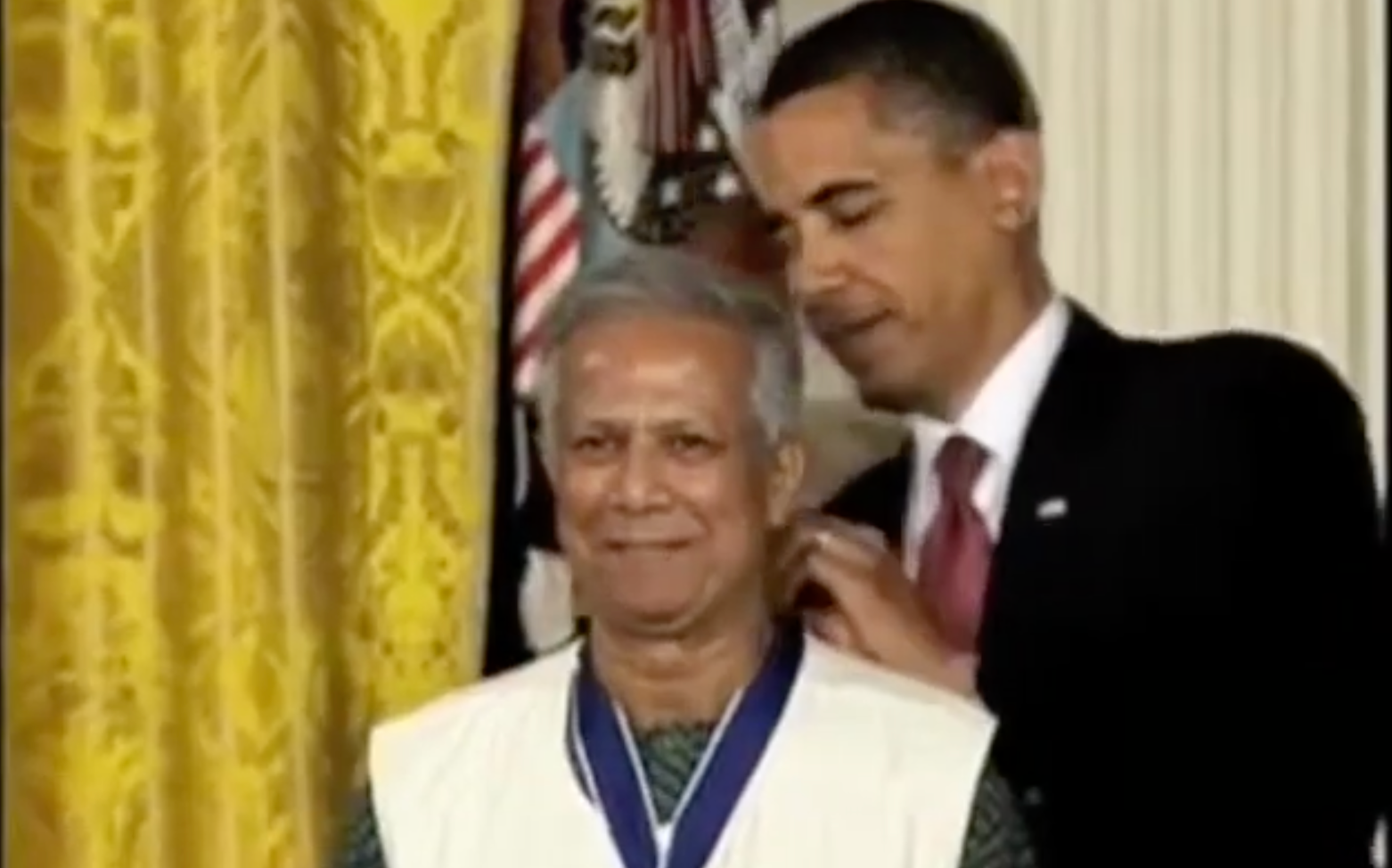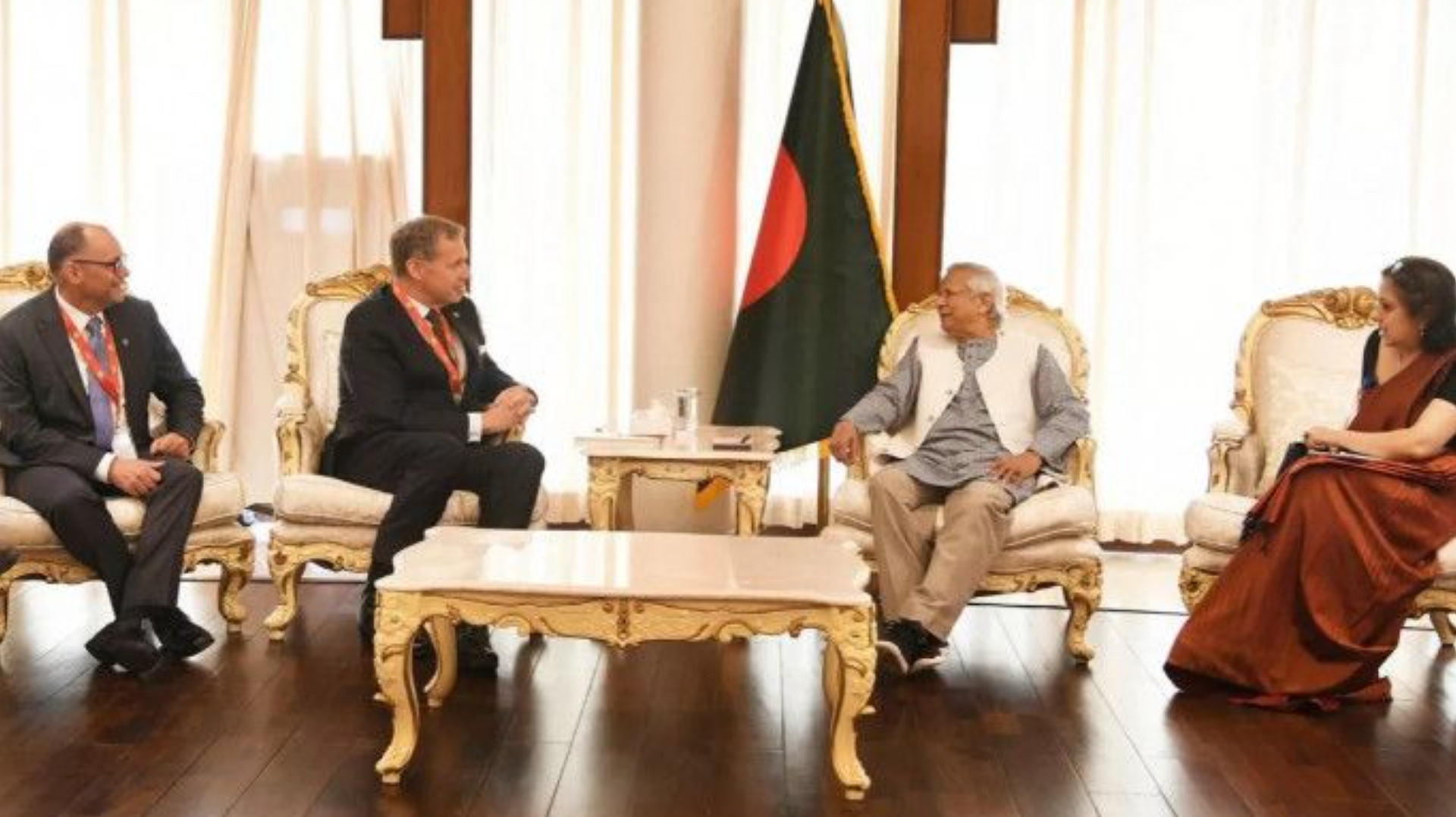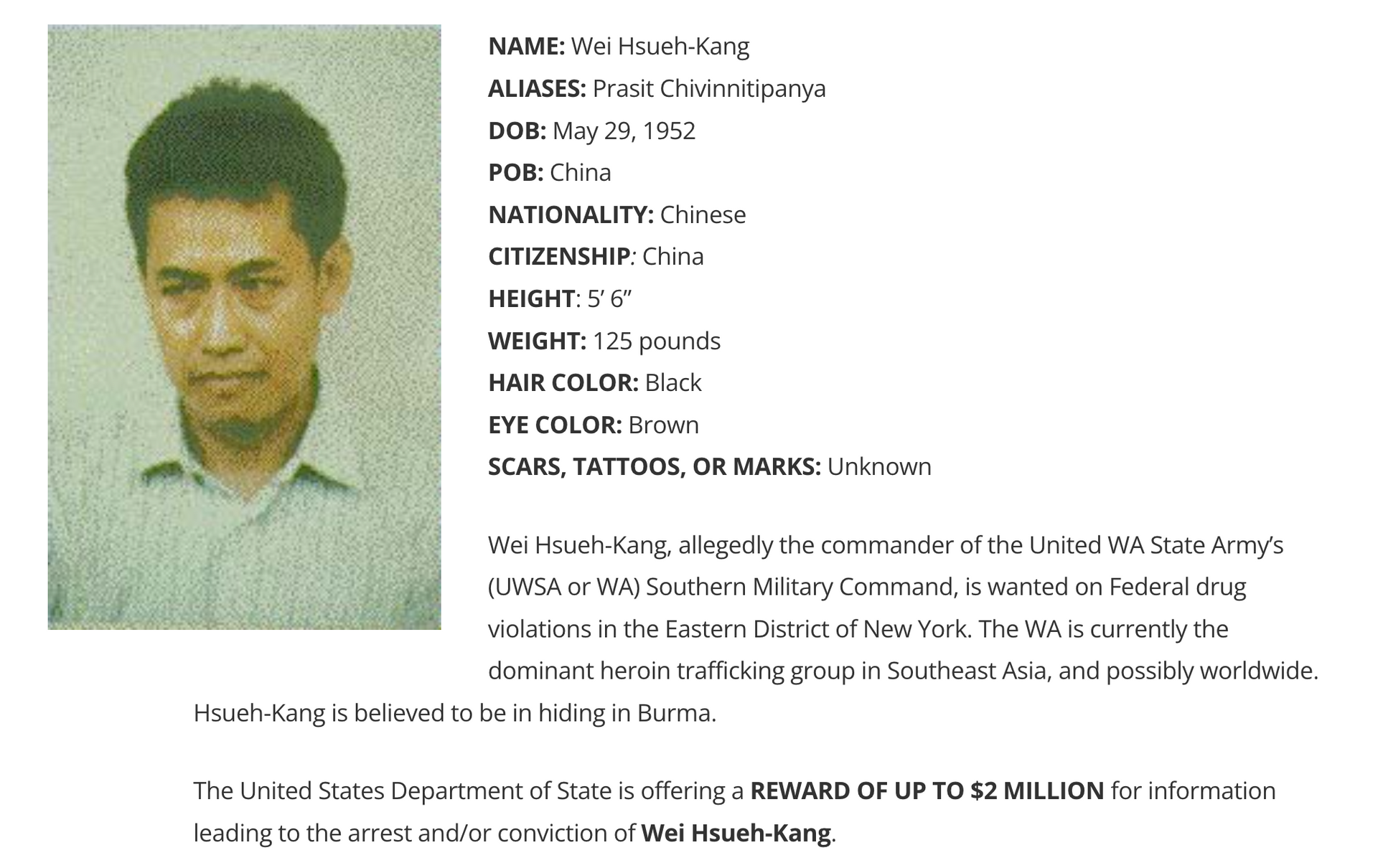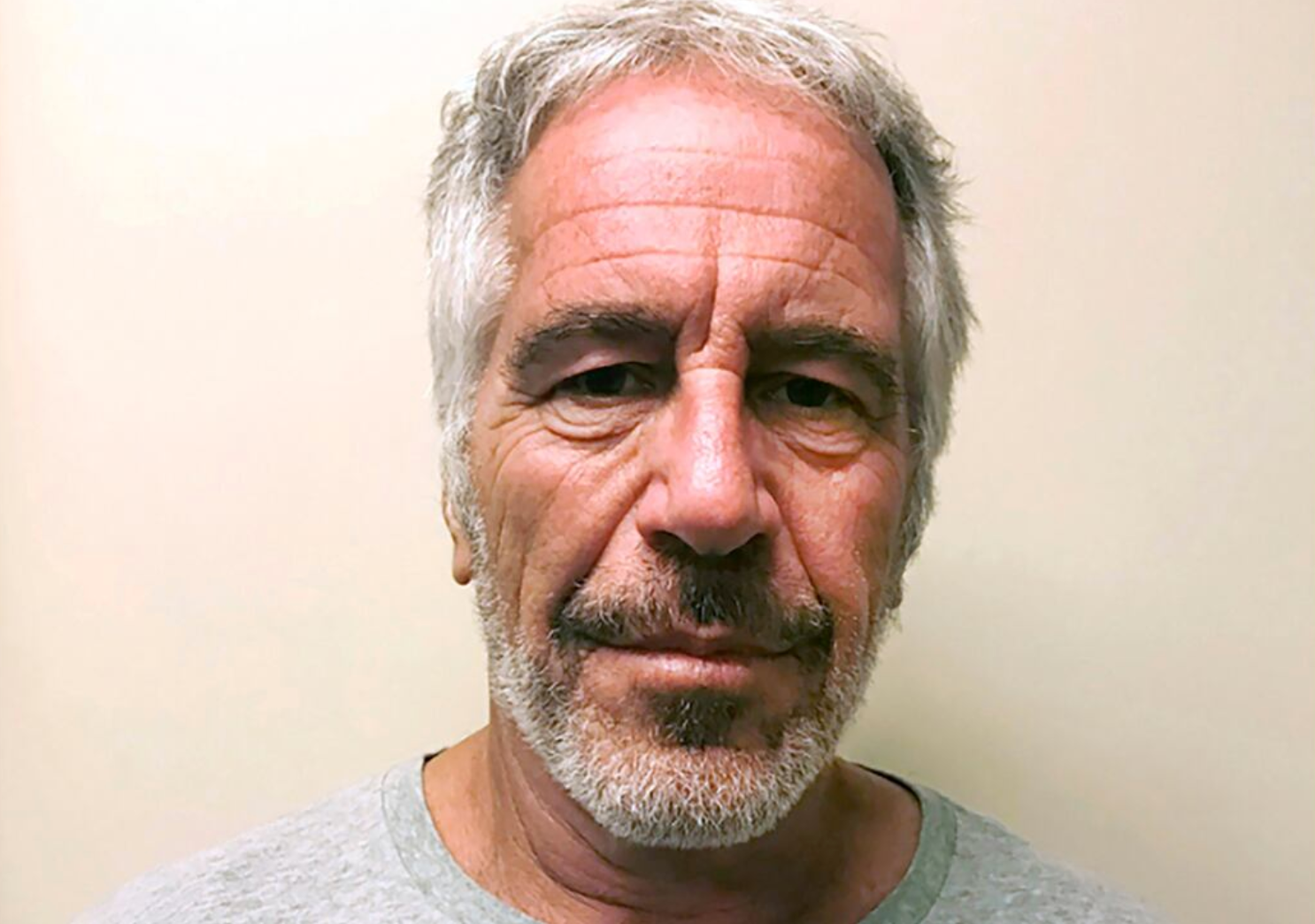America Taking Advantage of a Color Revolution in Bangladesh
January 5, 2025
D.C. Pushed for Regime Change to "Promote Democracy" as a Pretext to Improve America's Geopolitical Interests
Last August, the military stood by as thousands of protestors stormed the palace of Bangladesh’s Prime Minster, Sheikh Hasina. She fled on a military helicopter to India. This coup removed an authoritarian ally of India who had been in power since 2009 and installed an interim government led by US-friendly technocrats. This change in leadership has all the markings of a U.S.-supported “color revolution” and the American government has advanced its geopolitical position in the region.
What is a Color Revolution?
The American government has successfully orchestrated multiple successful revolutions/coups by funding foreign political opposition groups under the pretext of “promoting democracy.” Some examples are the 2003 “Rose Revolution” in Georgia, the 2004 “Orange Revolution” in Ukraine, and the 2005 “Tulip Revolution” in Kyrgyzstan.
Here’s how it works. The U.S. State Department funds “civil society” organizations that function as the Trojan horse of foreign policy, most notably the National Endowment for Democracy (NED). Officially, “NED is an independent, nonprofit foundation” that “makes more than 2,000 grants to support the projects of nongovernmental groups abroad who are working for democratic goals in more than 100 countries.”
Unofficially, NED is a CIA cutout group. By outsourcing much of the regime-change operations to non-government organizations (NGOs), it eliminates transparency and provides plausible deniability for the government. In fact, the founder of NED, Allen Weinstein, once told The Washington Post, “A lot of what we do today was done covertly 25 years ago by the CIA.” In a 1995 interview, the high-profile CIA whistleblower Philip Agee said, "Nowadays, instead of having just the CIA going around behind the scenes and trying to manipulate the process secretly by inserting money here and instructions there and so forth, they have now a sidekick, which is this National Endowment for Democracy."
NED, which received $315 million in U.S. government funding in 2024, has a long history of fomenting rebellion. The first of many successful post-Cold War color revolutions was the “Bulldozer revolution” in Serbia in 2000. That year the U.S. government paid $31 million to opposition groups in Serbia. That culminated in half a million protestors storming the streets of Belgrade demanding the resignation of Slobodan Milošević, even setting parliament on fire.
The leader of the opposition movement, Srdja Popovic, was a university student who founded, Otpor (“Resistance”). Otpor followed a model written by the late Harvard political scientist, Gene Sharp, who was the foremost expert on nonviolent revolutions. His books have been translated into 30 languages and spread around the world. Otpor, and all the subsequent color revolutions, used many of Sharp’s 198 “Methods of Nonviolent Action.” However, these revolutions weren’t entirely grassroots movements. There’s been significant American involvement. For instance, the U.S. government provided $65 million and $26.5 million to opposition groups in the 2004 “Orange Revolution” and “Tulip Revolution.”
Otpor eventually disbanded as an organization, but Srdja Popovic created another group in 2003, the Center for Applied Nonviolent Action and Strategies (CANVAS), which is actively training revolutionaries worldwide, which are often youth and student organizations. Popovic taught some of the early leaders of the Arab Spring protests in Egypt and Tunisia. There’s a formula and even the imagery shares similarities.

Color Revolutions images from different countries (Press and Quick Reaction Unit)
The Same U.S.-Led, Regime-Change Playbook in Bangladesh
One month after the Bangladesh coup, The Grayzone published a report of leaked documents from the U.S. government-funded International Republican Institute (IRI), one of the four core partners of the National Endowment for Democracy (NED). The report removes the veneer that IRI strictly operates to “promote democracy.” Instead, it reads more like a foreign intelligence operation. The IRI had developed 304 “key informants” and “identified over 170 democratic activists who would cooperate with IRI to destabilize Bangladesh’s politics.”
Here's some background on the IRI. Even though it is a “non-governmental organization,” its board of directors is filled with former and current congressional interventionists and war hawks, including Lyndsey Graham and Marco Rubio. John McCain was the chairman of IRI from 1993 until he died in 2018. The International Republican Institute (IRI) notably supported the military coup in Haiti in 2004 that overthrew the liberal democratically elected leader, Jean-Bertrand Aristide. McCain infamously encouraged thousands of protestors in Kyiv in 2013. A few months later, the U.S.-supported “Maidan Revolution” ousted the corrupt but democratically-elected Ukrainian leader, Viktor Yanukovych, who favored trade deals with Russia over the EU.
A U.S. Military Base in Bangladesh?
Sheikh Hasina told the Daily Star Bangladesh last May (before the coup) that she was offered a hassle-free election in January 2024 if she “allowed a certain country to build an air base in Bangladesh.” She didn’t specify the U.S. but mentioned that the “offer came from a white man.”
Just days after the coup, members of Hasina’s Awami League circulated an unconfirmed letter reportedly written by Hasina asserting that the proposition came from the U.S. seeking, in particular, St. Martin’s Island.
Hasina presumably did receive pressure from America as the U.S. State Department has repeatedly denied rumors of plans for a military base built on St. Martin’s Island. U.S. military control of that tiny island (three square kilometers) in the Bay of Bengal would represent a major geopolitical win for America in its growing rivalry with China. It would provide easy access to the Strait of Malacca, which is a critical chokepoint, where roughly 80% of China’s oil travels.

(Google Earth)
A more robust military partnership was the top priority for then-Assistant Secretary of State, Victoria Nuland, during her visit to Bangladesh in 2022. After all, Bangladesh is one of the top countries in the world providing soldiers for UN peacekeeping operations. However, Bangladesh’s Foreign Minister didn’t fall in line and publicly rebuked Nuland’s maneuvers to support Ukraine’s war efforts.
Nuland’s name is synonymous with U.S. hegemony. In the weeks leading up to the 2014 Maidan Revolution in Ukraine, she made the patronizing gesture of taking a photo op while handing out bread to the protestors. More to the point, the audio from one of her phone calls with then-U.S. Ambassador to Ukraine, Geoffrey Pyatt was leaked to YouTube a few weeks later. In that conversation, Nuland and Pyatt discussed which Ukrainian opposition leader should take power before the
Nuland said, “I don’t think (opposition leader, Vitali Klitschko) should go into the government. I don’t think it’s necessary, I don’t think it’s a good idea.” Pyatt replied, “Just let him stay out and do his political homework and stuff.” They both agreed on Arseniy Yatsenyuk who installed as Prime Minister after the revolution that took place two weeks later. U.S. media spun the story by focusing on the curse words, rather than highlighting the real scandal in which U.S. officials were openly choosing Ukraine’s leadership while the U.S. tax dollars subsidized “restoring democracy.”
America’s Deserved but Hypocritical Criticism of Sheikh Hasina
Bangladesh’s entire history has been plagued by corruption and political violence. Hasina’s reign was no different as she had a horrible human rights record. Bangladesh’s paramilitary force, Rapid Action Battalion (RAB), acts as an unofficial death squad. A 2009 Human Rights Watch report linked the RAB to the murders of at least 350 people in custody, and the alleged torture of hundreds more. Another report by Amnesty International in 2019 connected the RAB to 466 victims of state-sponsored extrajudicial killings under the guise of the “war on drugs.”
The U.S. government was certainly justified when it sanctioned that group in 2021. However, it should be mentioned that U.S. and U.K. intelligence trained the RAB. That relationship didn’t end until 2018 after years of evidence of widespread human rights abuses.
That terrible human rights record has been on full display over the past two years as there have been tens of thousands of protestors demanding Hasina’s resignation. The last cause célèbre was a decision in June by the Supreme Court reinstating a quota system that dedicated 30% of government jobs to children of independence war veterans. It was viewed as a corrupt program that benefited supporters of Hasina’s Awami League party. There was violence on both sides, but there was an alarming disproportionate use of force by government forces, including the Rapid Action Battalion (RAB). There were over 600 deaths and thousands injured.
U.S. Ally Installed
The student leaders of the Bangladesh revolution appointed Muhammad Yunus as the leader of the interim government. Yunus is the archetype of who D.C. wants in power. He’s a financier who favors Western-style economics with ties to the IMF and World Bank and attends the World Economic Forum in Davos. He was awarded the Nobel Peace Prize in 2006, the U.S. Presidential Medal of Freedom in 2009, and a Congressional Gold Medal in 2010.

Muhammad Yunus receiving the Presidential Medal of Freedom (YouTube)
Yunus is well-known among the Washington elite. As far back as 2006, Bangladesh officials noted that the U.S. didn’t want either candidate to win the upcoming election and was “actively supporting 2006 Nobel Peace Prize winner Muhammad Yunus,” according to reports released by WikiLeaks. He wasn’t even a candidate, but he was considering establishing a reform party and also met with Indian officials in hopes of gaining support. However, that political party never came to fruition.
That political ambition seemingly led to retaliation from Sheikh Hasina. Yunus was pressured to resign from his banking position and he sought help from then-Secretary of State, Hillary Clinton. Two of Yunus’s non-profit organizations donated over $100,000 to the Clinton Foundation and he became one of the highest profile examples from her “pay-to-play” scandal. Over half of Clinton’s official visitors while she led the State Department had donated to the Clinton Foundation. Clinton was unable to apply enough pressure to prevent Yunus from losing his banking role. However, the U.S. State Department subsequently provided 18 grants for $13 million to organizations led by Yunus.
Yunus later faced what appears to have been a politically-motivated prosecution, which upset the D.C. establishment. Obama, along with 170 global leaders, signed a letter in 2023 directed to Sheikh Hasina asking her to end the “continuous judicial harassment” against Muhammad Yunus. He faced over 150 charges but was only convicted of one offense, a labor violation. Yunus was facing six months in prison, but he won an appeal two days after the coup.
Yunus’s post-coup reception from the U.S. government couldn’t have been warmer. One month after the coup, USAID signed an agreement in September to provide over $200 million to the Bangladesh interim government. Biden also expressed the full support of this unelected leader in a literal embrace during a White House visit.
Two days later, Yunus met his with “friend of over 40 years,” former President Clinton, and spoke onstage at the annual Clinton Global Initiative event in New York City.

Muhammad Yunus at 2024 Clinton Global Initiative (YouTube)
Have Human Rights and Democracy Been Restored?
The Hindu minority (roughly 8% of the population) didn’t have much representation under Sheikh Hasina, but her Awami League party was the closest thing to an ally. In turn, discrimination and violence against Hindus increased substantially. A Bangladesh advocacy group asserted that 49 Hindu teachers were forced to resign in the first month. In just three weeks after the coup, there were an estimated 2,010 violent attacks. Sixty-nine Hindu temples were vandalized, looted, and set on fire. Another 157 families had their homes destroyed in the same manner.
As for promoting democracy, there seems to be no real progress. Last month, the U.S. State Department applauded Yunus’s announcement that elections would take place in late 2025 or early 2026. However, repression against free speech remains, but it’s now directed at the once-ruling party, Awami League. The Press Secretary for the interim government announced that the Awami League was banned from holding protests and labeled their party as “fascist.” Furthermore, the Bangladesh tribunal banned any form of dissemination of a post-coup speech from India made by Sheikh Hasina in which she criticized Yunus. This was labeled as “hate speech.”
Shift Towards American Energy Policy
Peter D. Haas publicly resigned last June from his post as the U.S. Ambassador to Bangladesh as a form of protest insisting that U.S. foreign policy wasn’t taking strong enough action against Hasina. His actions in this role would be best described as adversarial, not diplomatic. He frequently met with opposition leaders and gave Hasina much-deserved criticism for anti-democratic practices.

Muhammad Yunus (left) Nurjahan Begum (center) and Peter Haas (right) LinkedIn - Hosting a dinner together in March, 2024
The 2024 election was boycotted by the main opposition party as there was a history of voter fraud and state-sanctioned political violence. Afterward, Haas wrote an op-ed in which he vowed that “(w)e will continue to support the brave members of civil society and human rights defenders,” which is a not-so-subtle nod to the NED-funded groups in Bangladesh.
Yet, the public criticisms from U.S. officials about Bangladesh’s anti-democratic practices have stopped. One month after the coup, Haas began working for Texas-based Excelerate Energy which has a long history in Bangladesh. Overall, the energy policy in Bangladesh has rapidly changed in a short period of time and it tilts in America’s direction.
The interim government began reviewing energy deals that were signed by Sheikh Hasina, particularly an agreement signed with the Adani Group. Gautam Adani is one of the richest men in India and is closely tied to Indian Prime Minister Narendra Modi. Adani is in the crosshairs of the U.S. government and faces charges by the DOJ for an alleged $250 million bribery scheme.
In a rapid fashion, Bangladesh’s new leadership has shifted away from India’s energy sources. Construction of the India-Bangladesh Friendship Pipeline (IBFP) began in 2018 at a cost of $44 million. The project was completed in 2023 and Bangladesh imported 42,000 tons of diesel worth $34 million from India. However, India has suspended the construction of an extension after the coup.
India's H Energy, Russia's Gazprom, China's Sinopec, and Uzbekistan's Ariel had deals that were nearly finalized under the prior leadership, but the interim government canceled all those agreements. Excelerate Energy, on the other hand, kept two of its three deals.

Peter Haas (left) representing Excelerate Energy in September 2024 meeting with Interim Government leader Muhammad Yunus (center right)
To sum up, the U.S. government can claim that it takes a principled stand against human rights violations and anti-democratic practices, but it is now looking the other way because the coup that it helped orchestrate benefits its strategic interests.









